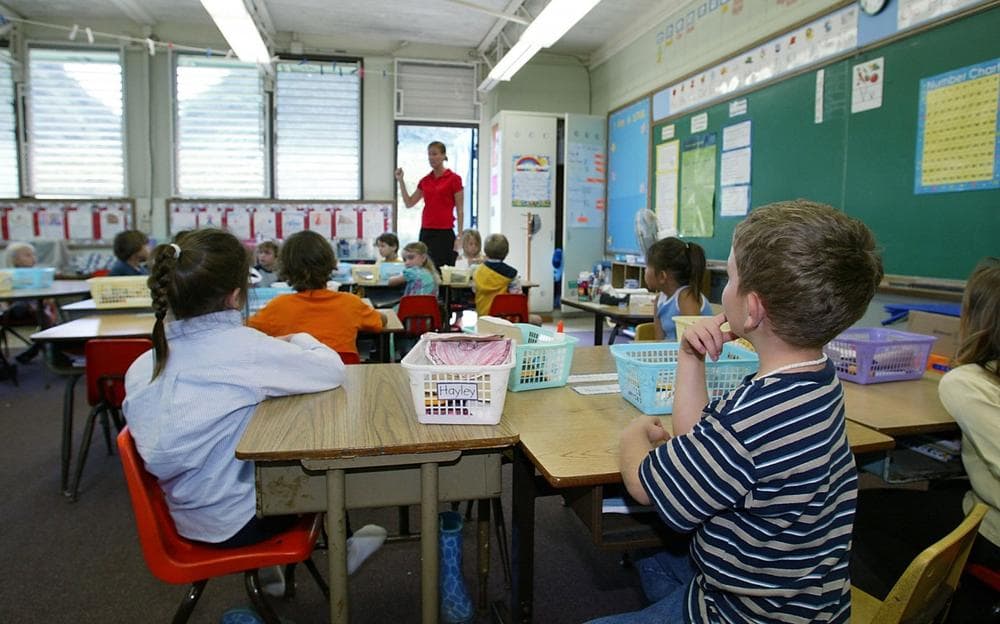Advertisement
Survey Examines School Safety Changes Since Newtown
Resume
In the year since the mass shooting at Sandy Hook Elementary School, are students any safer? A new survey conducted by NPR, the Robert Wood Johnson Foundation and the Harvard School of Public Health takes a closer look at school safety nationwide.
Harvard School of Public Health professor Robert Blendon was co-director of the poll, and joins Here & Now's Meghna Chakrabarti with details on the findings.
- Study: Education and Health in Schools: A Survey of Parents (go to page 5)
Interview Highlights: Robert Blendon
On security changes in elementary schools
"Parents of kids at elementary schools, six out of 10 thought that the security at their child's school had improved over this year. And they were able to list the number of things that were going on. Now, we're talking about elementary schools. Requiring visitors to be checked in, counseling kids that look like they're in trouble. We're talking about, again, very young kids. A third now have police officer or armed security. ... A smaller share now find themselves at elementary schools where people have agreed to do random searches of lockers, and occasionally students."
On security changes in high schools
"We also were able to look at high school students, and the changes were not as great over this year because actually the real changes came in 1999 after the Columbine shootings in Colorado. ... In 1999, half of high schools had a police or security guard. It is now 70 percent. And random searches go from one in five, to one in three today. So there is a lot more that has gone on in high schools as a response to the shootings, and these efforts have most parents feeling that their kids' schools are relatively safe, but not minority parents or low-income."
On communities without improved security
"African American parents and people in low-income communities don't feel that their schools offer their children the same safety. ... The ability to move forward has not touched — the way you would have hoped — every school in America, and we have not been able to reassure every parent over this year. And that's very important"
Guest
- Robert Blendon, professor of health policy and political analysis at Harvard School of Public Health.
This segment aired on December 13, 2013.